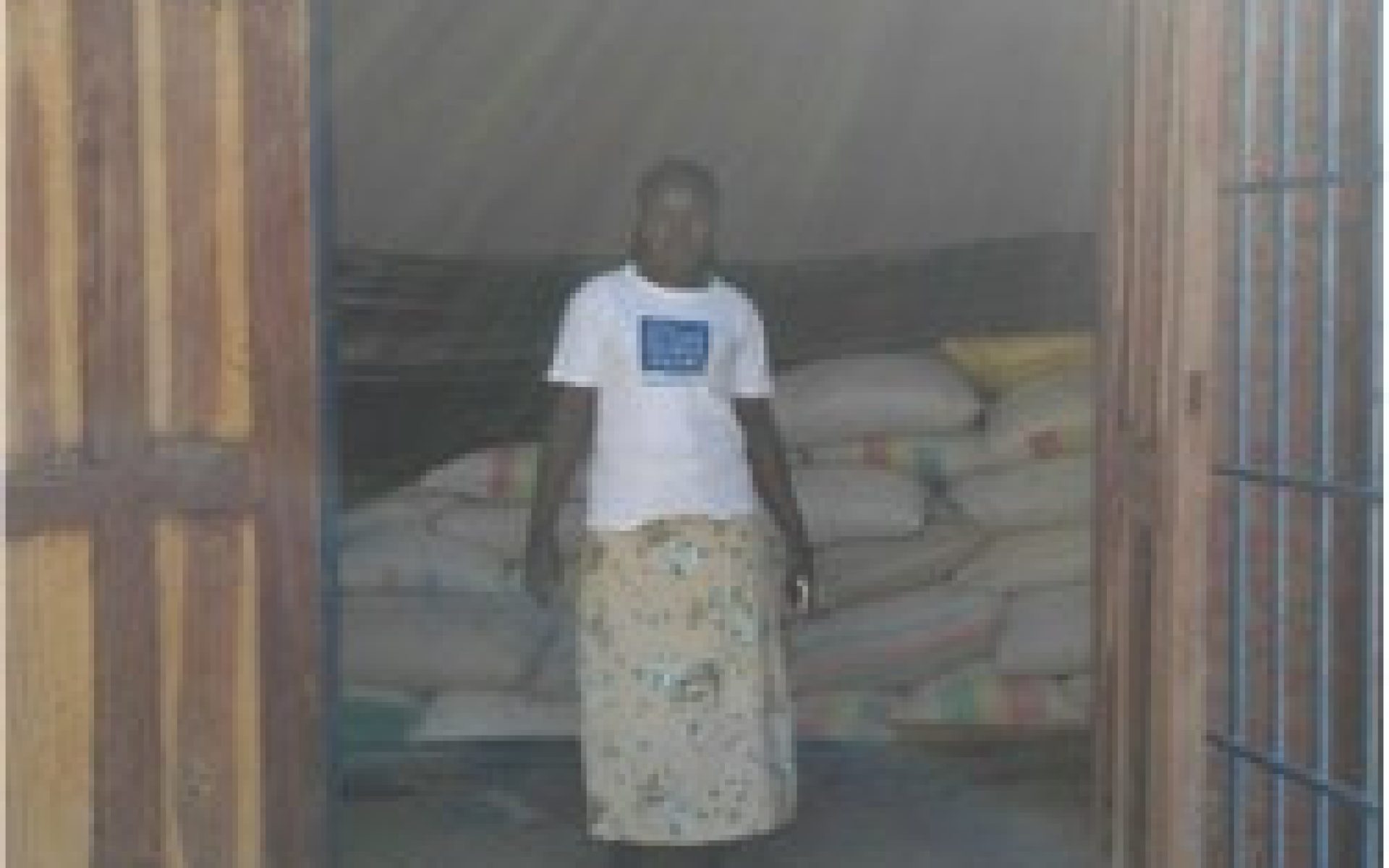Written by CorpsAfrica/Malawi Volunteer Mr. James Matipwiri
While in the past it would take generations, now it is a common phenomenon to be hit by dry spells every couple of years. Apparently, experts say that it is due to climate change and according to them, it is a very challenging thing to fight or reverse. Climate change has caused many to suffer from food and water shortages and other health problems. However, viable solutions are being implemented from all sectors, at all levels, and in different approaches. But what is my community doing about it? Meet the Kachindamoto Food Bank.
Built in the year 2008 with the help of The Hunger Project Malawi (THP). The food bank was designed to reach 38,000 people in the catchment area consisting of 28 villages. It is the backbone for the community’s nutrition and a source of economy for the Epicentre. But how does it operate? Who runs it? What are its successes and challenges? Well, in search for these answers I had a chat with one prominent member of the food bank committee. She quenched my curiosity in a 10 minute interview summarized below.
Me: So, tell me about yourself.
Elube: I am Elube Phiri from group village Sunduzeni. I hold the position of vice treasurer in the committee for the food bank.
Me: Why did you build the Food bank and who’s idea was it?
Elube: It was built by the community with help from THP. Back in 2006 the T/A Kachindamoto instructed two village head men to mold bricks for development works in the community. The exercise took two years and then construction of the Epicentre commenced. The food bank you see is one of the buildings making the Epicentre.
Me: How do you do your work?
Elube: Well, due to food shortages we have been facing in the past, THP came to us with a solution. It was agreed that farmers be provided with farm inputs, particularly fertilizers. In return we pay part of our produce (maize) to the Epicentre. The food bank is what houses the grains collected from around the two communities. So, if one gets a bag of fertilizer he/she is expected to pay back nine bags of maize to the food bank. The maize is treated so that it is protected from weevils and other common grain insects. In times of need, the maize is sold back to the community at a cheaper price. The revenue generated is used to purchase farm inputs for the next growing season.
Me: Who runs it?
Elube: The food bank is run by dedicated volunteers. The community selects individuals that have undoubtedly good leadership skills.
Me: What are your successes and challenges so far?
Elube: We have been able to survive on our own during times of food shortages because of this food bank. Inside it we can keep over 50 metric tons. So far, the big challenge is the amount of space we have for storage. This restricts us to focusing on maize only; I wish we had the capacity to store other grains like rice and beans. Another challenge is that not all people are able to pay back the debt in full. But anyway, that is always expected.
Me: It was nice having a chat with you Mrs. Phiri.
Elube: Thank you Alangizi (Supervisor).
That is how my brief interview with Mrs. Elube Phiri, the food bank vice treasurer went.

